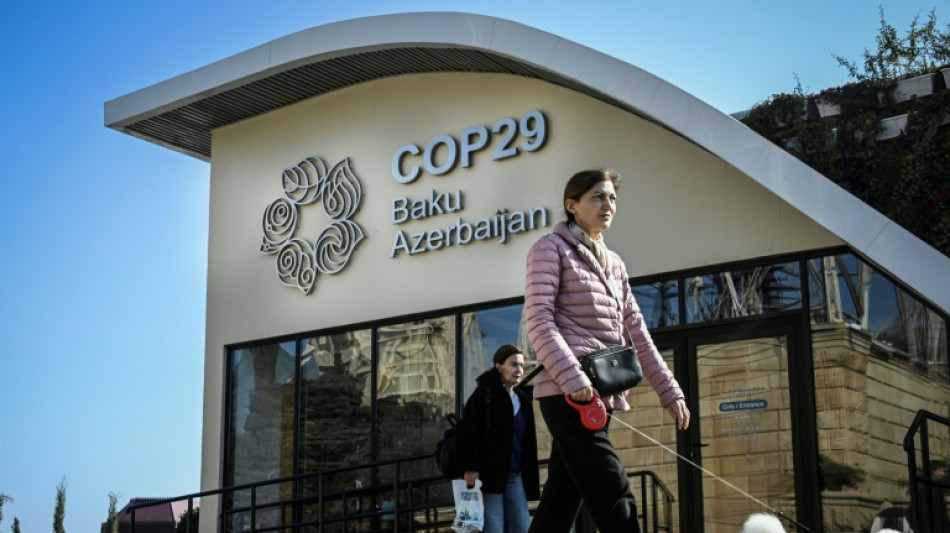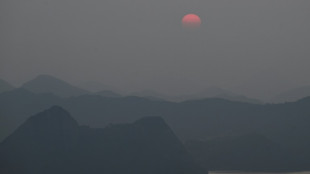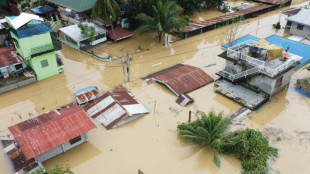

COP29 opens with Trump climate withdrawal looming
The COP29 climate talks open Monday in Azerbaijan, under the long shadow cast by the re-election of Donald Trump, who has pledged to row back on the United States' carbon-cutting commitments.
Countries come to Baku for the main United Nations forum for climate diplomacy after new warnings that 2024 is on track to break temperature records, adding urgency to a fractious debate over climate funding.
But Trump's return will loom over the discussions, with fears that an imminent US departure from the landmark Paris agreement to limit global warming could mean less ambition around the negotiating table.
"We cannot afford to let the momentum for global action on climate change be derailed," said Ralph Regenvanu, Vanuatu's special envoy for climate change and environment.
"This is a shared problem that will not solve itself without international cooperation, and we will continue to make that case to the incoming president of one of the world's largest polluters."
Outgoing President Joe Biden is staying away, as are many leaders who have traditionally appeared early in COP talks to lend weight to the proceedings.
Just a handful of leaders from the Group of 20, whose countries account for nearly 80 percent of global emissions, are attending.
Afghanistan will however be sending a delegation for the first time since the Taliban took power. They are expected to have observer status.
Diplomats have insisted that the absences, and Trump's win, will not detract from the serious work at hand, particularly agreeing a new figure for climate funding to developing countries.
Negotiators must increase a $100 billion-a-year target to help developing nations prepare for worsening climate impacts and wean their economies off fossil fuels.
How much will be on offer, who will pay, and who can access the funds are some of the major points of contention.
- 'It's hard' -
"It's hard. It involves money. When it comes to money, everybody shows their true colours," Adonia Ayebare, the Ugandan chair of a bloc that groups over 100 mostly developing countries and China, told AFP on Sunday.
Trump, who has repeatedly called climate change a "hoax", has vowed to pull the United States out of the Paris agreement.
But Ayebare brushed aside the potential consequences of a US withdrawal, noting Trump already took Washington out of the Paris agreement during his first term.
"This has happened before, we will find a way of realigning."
Developing countries are pushing for trillions of dollars, and insist money should be mostly grants rather than loans.
They warn that without the money they will struggle to offer ambitious updates to their climate goals, which countries are required to submit by early next year.
"Bring some money to the table so that you show your leadership," said Evans Njewa, chair of the LDC Climate Group, whose members are home to 1.1 billion people.
But the small group of developed countries that currently contributes wants to see the donor pool expanded to include other rich nations and top emitters, including China and the Gulf states.
One Chinese official warned Sunday during a closed-door session that the talks should not aim to "renegotiate" existing agreements.
Liang Pei, an official at China's Ministry of Ecology and Environment, urged negotiators to instead address "the climate crisis collectively, constructively."
- 'Worth it' -
The talks come with fresh warnings that the world is far off track to meet the goals of the Paris agreement.
The climate deal commits to keep warming below 2C compared to pre-industrial levels, preferably below 1.5C.
But the world is on track to top that level in 2024, according to the European Union climate monitor.
That would not be an immediate breach of the Paris deal, which measures temperatures over decades, but it suggests much greater climate action is needed.
Earlier this year, the UN warned the world is on track for a catastrophic 3.1C of warming this century based on current actions.
"Everyone knows that these negotiations will not be easy," said Germany's Foreign Minister Annalena Baerbock.
"But they are worth it: each tenth of a degree of warming avoided means fewer crises, less suffering, less displacement."
More than 51,000 people are expected at the talks, which run November 11-22.
For the second year running the talks will be hosted by a country heavily reliant on fossil fuels, after the United Arab Emirates last year.
Azerbaijan has also been accused of stifling dissent by persecuting political opponents, detaining activists and suffocating independent media.
E.Smith--IP




